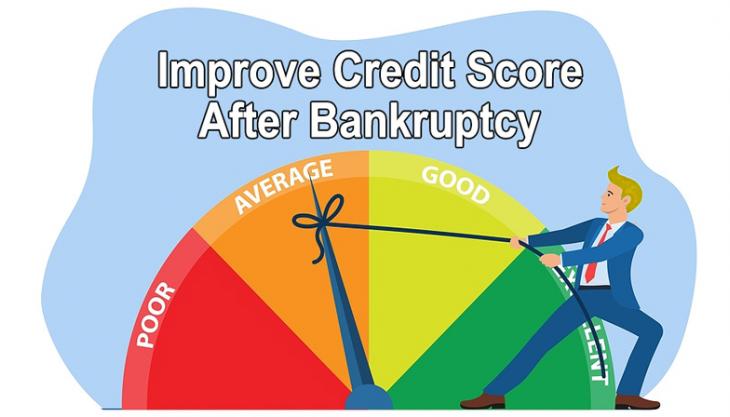After Bankruptcy Our 720 Credit Score Program Can Help Clients Regain Their Credit
Submitted by Jeremy Harn on Mon, 05/16/2022 - 9:27pm

Consumer bankruptcy is often the only way for consumers to avoid a virtual “debtor’s prison.” But once a consumer has gone through the bankruptcy process and received a discharge, what do they do next? We’ve had many clients express dismay and experience hardship from credit issues. One such hypothetical client is Nancy. While Nancy is not a real client, her story closely resembles the stories of our real clients.
Credit Reporting Errors
Nancy came to our office because she defaulted on a credit card after years of trying to manage the minimum payments. Before the default, Nancy’s credit score was considered good, and she had no trouble applying for credit. Nancy’s credit score was lowered significantly when the credit card company reported the default and sold the debt to a debt collector who reported the debt as “in collections.”
Nancy filed a Chapter 13 bankruptcy to take control of her financial situation and get a fresh start. During her bankruptcy, Nancy began to notice several errors on her report. Many creditors were illegally reporting things that were inaccurate or misleading, and her credit score began to go even lower. Despite this, Nancy was hopeful that her report would be cleaned up at the end of her case when she received her bankruptcy discharge.
Cleaning Up a Credit Score
By law, credit reporting agencies and the creditors who furnish information to those agencies must report accurate information. After a bankruptcy discharge, these same entities are required to clean up your report to match the new status of the debts that have been reported. Nancy was shocked to see that her credit report was not fixed after she received her discharge.
Most notably, the debt collector from before her bankruptcy was still reporting that the debt was “in collections.” Nancy knew that what her creditors and the credit bureaus were doing was not right, but she did not even know where to start. Our firm was able to help her dispute these errors and have them removed, at no cost to Nancy. After the errors were removed, Nancy noticed that she still had some more work to do to get her credit back to where it was before she filed for bankruptcy. Our firm was able to give Nancy some tips, but what she really wanted was a program that would walk her through how to get her credit back on track, step by step.
720 Credit Score
That’s where the 720 Credit Score program comes in. 720 Credit Score was created to help consumers rebuild stable, long-term credit that will allow them to truly take advantage of the fresh start that bankruptcy can give. The program is online and is full of tools and resources to help debtors rebuild their credit after bankruptcy. This program is now being offered to any North Carolina consumer that filed for bankruptcy after March 1, 2022. This is not a program that is only available to our clients, nor is it limited to a certain district or city within North Carolina. Bankruptcy lawyers and their clients around the state should take advantage of this no-cost tool so that they can truly achieve the fresh start that bankruptcy intended.
Debts Hurt! Got debt? Need help? Get started below!
Serving All of North Carolina
- Bankruptcy Attorneys Raleigh NC (North)
- Bankruptcy Attorney Fayetteville NC
- Bankruptcy Attorney Durham NC
- Bankruptcy Attorneys Wilson NC
- Bankruptcy Attorneys Greensboro NC
- Bankruptcy Attorneys Southport NC
- Bankruptcy Attorneys Wilmington NC
Bankruptcy Attorneys Raleigh NC (North)
6616 Six Forks Rd #203 Raleigh, NC 27615 North Carolina
Tel: (919) 847-9750

Bankruptcy Attorney Fayetteville NC
2711 Breezewood Ave Fayetteville, NC 28303 North Carolina
Tel: (910) 323-2972

Bankruptcy Attorney Durham NC
1738 Hillandale Rd Suite D Durham, NC 27705 North Carolina
Tel: (919) 286-1695


Bankruptcy Attorneys Greensboro NC
2100 W Cornwallis Dr. STE O Greensboro, NC 27408 North Carolina
Tel: (336) 542-5993

Bankruptcy Attorneys Southport NC
116 N Howe St. Suite A Southport, NC 28461 North Carolina
Tel: (910) 218-8682

Bankruptcy Attorneys Wilmington NC
116 N. Howe Street, Suite A Southport, NC 28461 North Carolina
Tel: (910) 447-2987
